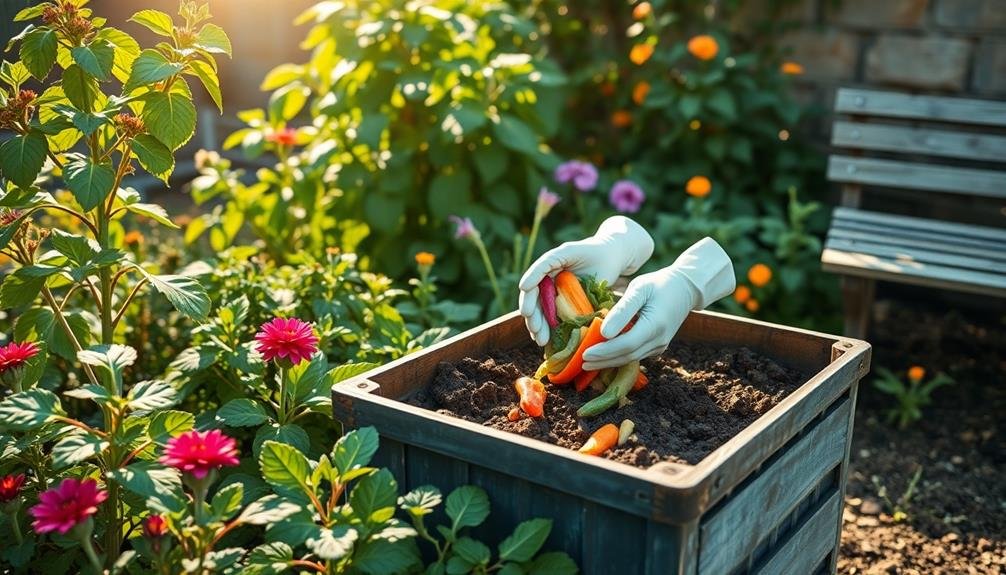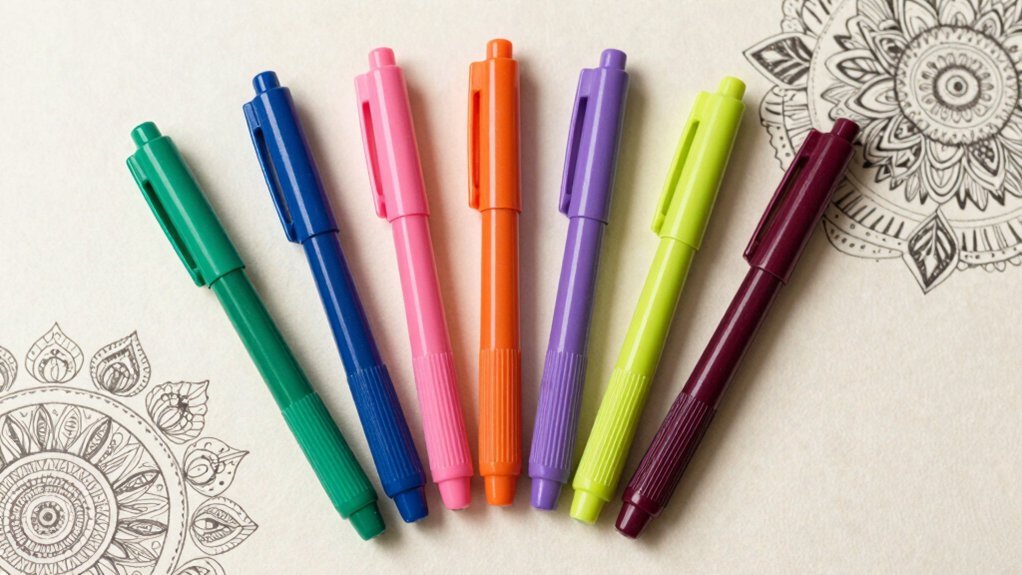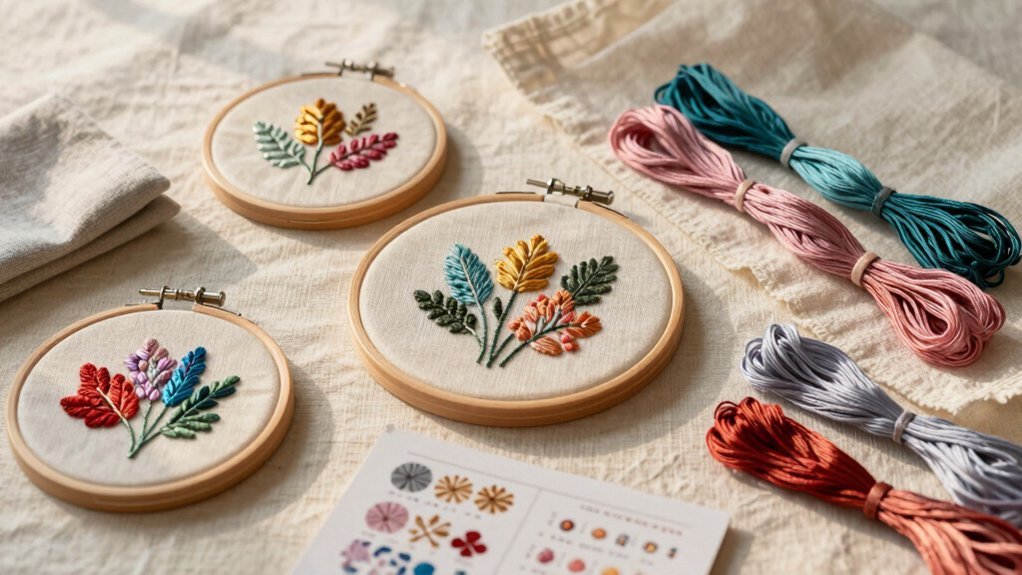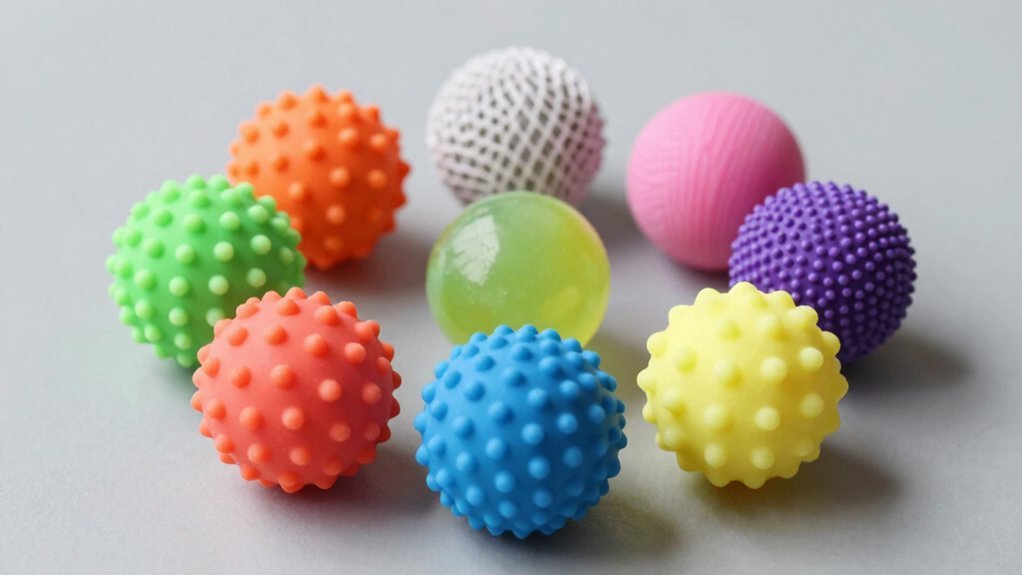Start small and simple with composting to manage anxiety in gardening. Begin with a compact bin, focus on basic materials, and establish an easy routine. Create a calming compost ritual by designating specific times for tasks and engaging your senses. Embrace imperfection in the process, avoiding stress over ideal ratios or temperatures. Instead, concentrate on the basics: mixing green and brown materials, maintaining moisture, and turning the pile. View challenges as learning opportunities rather than failures. By following these tips, you'll transform composting into a peaceful, fulfilling practice that nurtures both your plants and your mental well-being. Discover how composting can become your garden sanctuary.
Key Takeaways
- Start with a small, manageable compost bin in an easily accessible location to avoid feeling overwhelmed.
- Create a calming composting routine with specific tasks assigned to different days of the week.
- Focus on basic compostable materials and simple layering techniques to keep the process straightforward.
- Embrace imperfection in composting, viewing challenges as learning opportunities rather than failures.
- Engage with the sensory aspects of composting, such as earthy smells and textures, to promote mindfulness.
Start Small and Simple

Starting small is key when it comes to composting for anxiety-friendly gardening. Begin with a compact bin or container that's manageable and won't overwhelm you. Choose a location that's easily accessible, such as a quiet corner of your backyard or a small balcony space.
Focus on basic compostable materials like fruit and vegetable scraps, coffee grounds, and dry leaves. Don't worry about perfecting the balance right away; you'll learn as you go. Start by layering these materials in your bin, alternating between "green" (nitrogen-rich) and "brown" (carbon-rich) items.
Keep it simple by turning your compost pile once a week with a garden fork or small shovel. This aerates the mixture and helps speed up decomposition. Don't stress about maintaining an exact schedule; do it when you feel comfortable.
Monitor moisture levels by occasionally squeezing a handful of compost. It should feel damp, like a wrung-out sponge. If it's too dry, add a little water; if it's too wet, mix in some dry materials.
Create a Calming Compost Routine

A calming compost routine can transform your gardening experience into a soothing ritual. By establishing a consistent schedule and mindful approach, you'll create a peaceful process that benefits both your garden and your mental well-being.
Start by designating a specific time each week for composting activities. This could be early morning or late afternoon when the garden is quiet. As you work, focus on the sensory aspects of the task: the earthy smell of decomposing materials, the texture of leaves and grass clippings, and the sound of your tools mixing the pile.
To help structure your routine, use this simple guide:
| Day | Morning | Evening |
|---|---|---|
| Monday | Collect kitchen scraps | Turn compost pile |
| Wednesday | Add dry materials | Check moisture level |
| Friday | Collect yard waste | Measure temperature |
| Sunday | Sift finished compost | Plan next week's tasks |
Embrace Imperfection in Composting

While a structured routine can be beneficial, it's equally important to embrace imperfection in your composting journey. Understand that composting is a natural process with inherent variability. Your compost pile won't always look perfect or decompose at the same rate, and that's okay.
Don't stress over achieving the ideal carbon-to-nitrogen ratio or maintaining an exact temperature. Instead, focus on the basics: mixing green and brown materials, keeping the pile moist, and turning it occasionally.
If you notice an odd smell or sight, view it as an opportunity to learn rather than a failure.
Frequently Asked Questions
Can Composting Attract Pests or Create Unpleasant Odors?
Yes, composting can attract pests and create odors if not managed properly. You'll need to balance your compost pile's ingredients, keep it moist but not wet, and turn it regularly to prevent these issues from occurring.
What Materials Should Be Avoided When Composting for Anxiety-Friendly Gardening?
You'll want to avoid materials that can create strong odors or attract pests. Don't compost meat, dairy, oils, diseased plants, or pet waste. These can cause anxiety-inducing smells and unwanted visitors to your compost pile.
How Long Does It Take for Compost to Be Ready for Use?
You'll typically wait 3-12 months for compost to be ready. It depends on factors like what you're composting, the pile's size, and how often you turn it. You'll know it's done when it's dark, crumbly, and earthy-smelling.
Are There Any Safety Precautions to Consider When Handling Compost?
When handling compost, you'll want to wear gloves to protect your hands. It's best to use a mask to avoid inhaling spores. Don't forget to wash your hands thoroughly after working with compost to maintain good hygiene.
Can Indoor Composting Be an Option for Those With Limited Outdoor Space?
Yes, you can compost indoors! Use a small bin or tumbler in your kitchen or balcony. It's perfect for apartment dwellers. You'll need a mix of green and brown materials, and remember to turn it regularly.
In Summary
You've learned three anxiety-friendly composting tips to enhance your gardening experience. Remember to start small, establish a calming routine, and embrace imperfection. Don't let anxiety hold you back from enjoying the benefits of composting. As you practice these techniques, you'll find that composting becomes less intimidating and more rewarding. Keep nurturing your garden and your mental health simultaneously. With time and patience, you'll cultivate a thriving compost pile and a more relaxed gardening mindset.





Leave a Reply